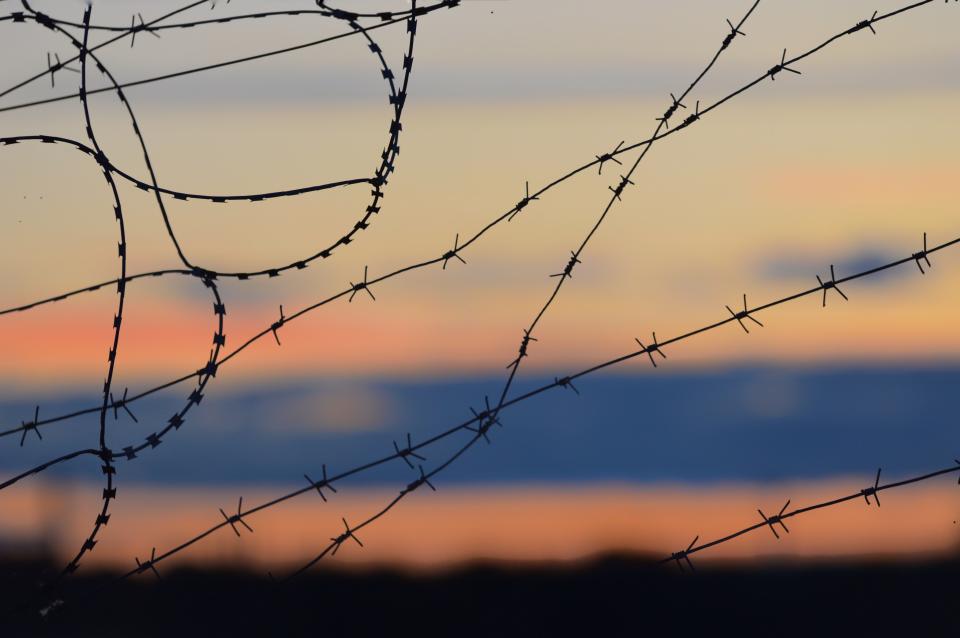Israel is where I have family. It is the country many of my friends, and coworkers (Jews and Arabs both) call home. My heart is weighed down at the recent manifestation of violence and hatred that we have seen erupt there.
How is a Christian to make sense of it all?
I assert that God’s deepest desire, as made known in Jesus Christ, is “to seek and to save that which was lost” (Luke 19:10). And I believe this is an opportune moment for the church to boldly proclaim that the only hope for peace was born in the Middle East.
This crisis is provoking spiritual and emotional issues among Israelis and Palestinians (and among those who love them both) and blatant hatred and anti-Semitism. As a Jewish follower of Jesus that is where I am most deeply touched. For a country that only makes up 0.24 percent of the land in the Middle East, Israel reaps a disproportionate worldwide fixation—whether positive or negative. News outlets have made Israel a daily headline, and much of the coverage of the current conflict has been polarizing: some have called for the end of the existence of the State of Israel and the annihilation of all Jews. Some paint Israel as an idealized entity beyond reproach.
Criticism of Israel is appropriate where necessary
Criticism of Israel is appropriate where necessary because Israel is not perfect—but perfection is not a prerequisite for existence. If criticism of Israel is disproportionate, based on untrue or uncontextualized assumptions, it can lead to the perpetuation of anti-Semitism. Often, anti-Zionism is a cover for anti-Semitism, and when that is the case, we must be vigilant and stand against it.
Though my reactions may be strong—heartbreak and anger—I must choose words and actions wisely. As a believer in Jesus Christ, I want to avoid perpetuating overly divisive and unnuanced viewpoints that drive a wedge rather than invite engagement. I am called to be a peacemaker—to show love even to enemies and grace to those who disagree with me.
As a peacemaker, I should seek balanced and credible information, listening to and supporting those who have been closely impacted by the conflict, and use my voice to pray, speak truth, advocate for peace, and the preservation of life for all people. “Be wise in the way you act toward outsiders; make the most of every opportunity. Let your conversation be always full of grace, seasoned with salt, so that you may know how to answer everyone” (Colossians 4:5-6)
Jesus my King lived in a turbulent time.
He prayed for His enemies, engaged with people of diverse backgrounds, and spent time immersed in and meeting the needs of His community. His message had the power to tear down the walls of division and bring unity, to show grace in response to hatred.
This time is an opportunity for me to demonstrate the love of Messiah and to support the Israeli and Arab people in ways that strengthen my testimony and align with my values. I carry in my heart the only hope for lasting peace for all people and now more than ever, I need to share that hope. Through the light of Messiah who dwells in me, I can stand against the darkness that threatens to weave itself into history.
Christians can offer public prayer and messages of peace for all the people in the land. They can create spaces for dialogue with those whose world view differs. Our humanity depends on proximity to difference. Our Jesus calls us follow his example in pursuing such proximity.
As we navigate this situation
Let us pray for one another to respond in a way that brings glory to the Lord. Let us pray for protection for the Jewish and Arab citizens of Israel, and also for the people of Gaza and the West Bank. Let us pray for the Lord to change our hearts and attitudes to reflect His. And most important, let us pray that even during times of death and tragedy, God may bring about His salvation and new life.
As we participate in the wider mission of the Church to fulfill the commands of Jesus, we know that for the Church to be above reproach, she must be willing to bear the same reproach as Messiah. “So, Jesus also suffered outside the gate to sanctify the people through his own blood. Therefore, let us go to him outside the camp and bear the reproach he endured” (Hebrews 13:12-13). We must be willing to suffer the reproach of the world and to forsake all repute and renown to serve faithfully. Accepting this, making it central to our understanding of who we are is essential to our mission. It makes us vulnerable even as Messiah was vulnerable.
I recognize the differing interpretations of the complex historical context and present political realities of the State of Israel, its relationship with its neighbors, and the Israeli-Palestinian conflict. I support the aspirations of my Jewish people to live in the State of Israel in justice, peace, and righteousness, and I pray for all its people to achieve these things in the day-to-day realities of life. We call on all people to “Pray for the peace of Jerusalem” (Psalm 122:6) and its outworking among all the inhabitants of the Land of Israel and its surrounding nations. Israel’s need is to be at peace with God through Jesus our Messiah.
I also affirm that the people of Israel hold their existence subject to God’s ongoing election and providential purposes. I call on all people, whatever their views on the future of Israel, to long for the day when “All Israel shall be saved” (Romans 11:26) and to work and witness to the saving purposes and power of God through the Messiah.
Dr Andrew Barron is an alumni and Adjunct Faculty at Wycliffe College. He is a Jewish follower of Jesus and has served with Jews for Jesus since 1983.





